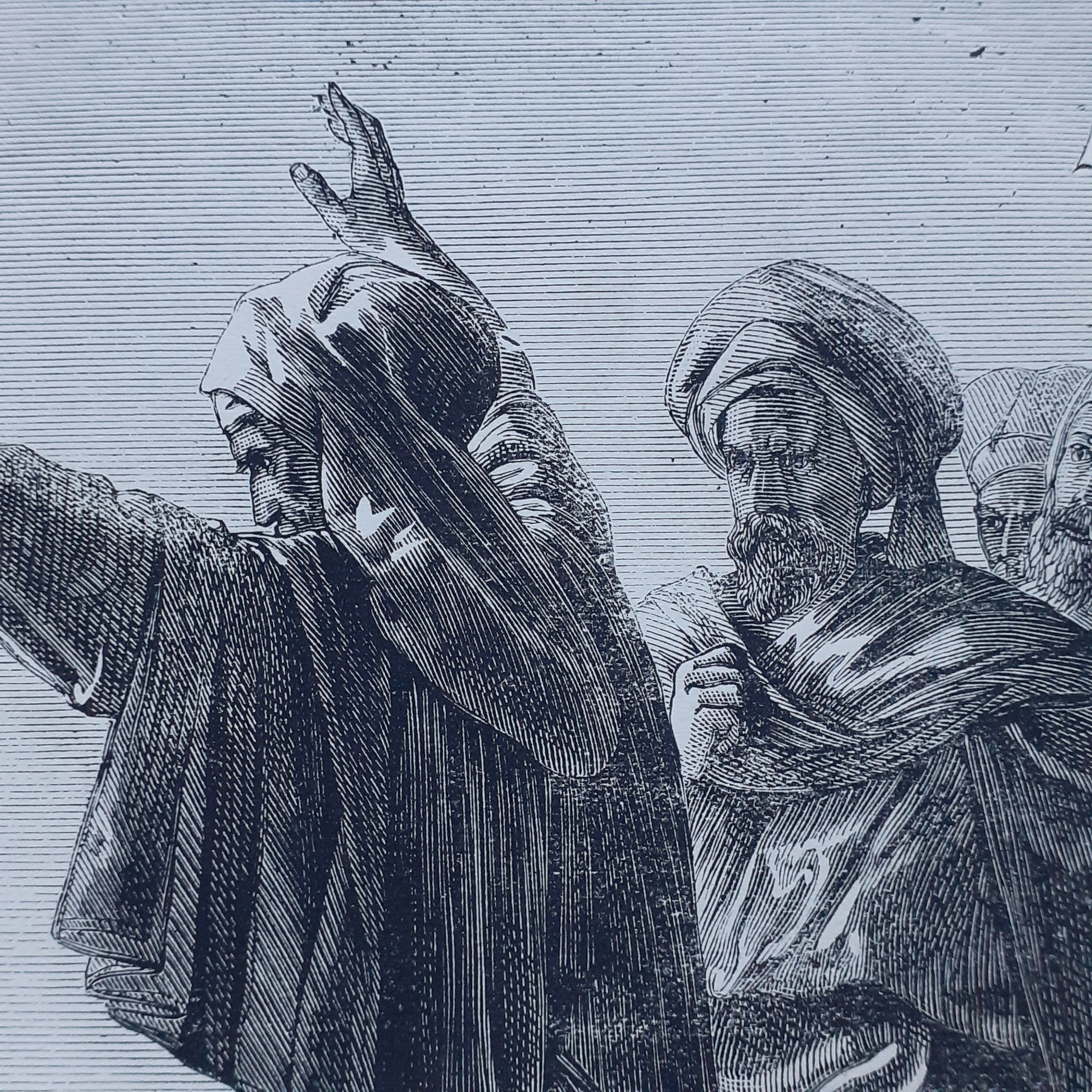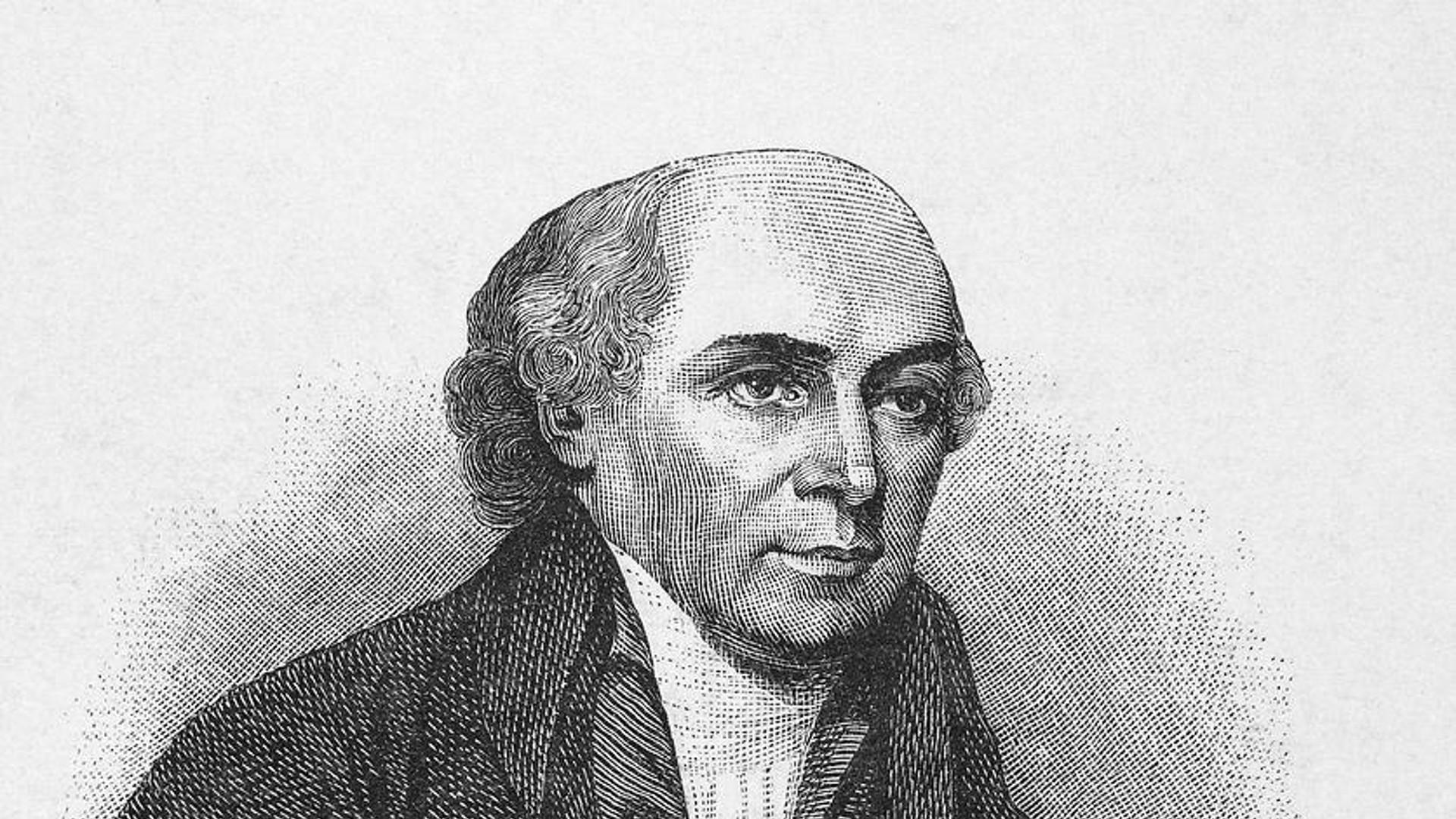Category: Uncategorized
Without Excuse
Bertrand Russell was a famous atheist philosopher who was once asked what he would say to God if he found himself standing before Him after he died. Russell said that he believed that he could charge God with not giving him enough evidence to believe in Him. Russell’s argument, however, goes against a fundamental truth found in Romans 1 that explains that God has clearly revealed Himself to all of mankind so that they are all without excuse.
Romans 1:18 states that the “wrath of God is revealed from heaven against all ungodliness and unrighteousness of men, who hold the truth in unrighteousness.” The wrath of God is revealed against men because they choose to suppress the truth of God’s existence. All of mankind knows that God exists (whether they claim to or not) because “that which may be known of God is manifest in them; for God hath shewed it unto them” (Rom. 1:19). An atheist denies with his words what he knows to be true in his heart. The Bible states that “the invisible things of him from the creation of the world are clearly seen, being understood by the things that are made, even his eternal power and Godhead…” (Rom. 1:20). God’s wrath is revealed against all the ungodly who suppress the truth of God’s revelation of Himself so “…that they are without excuse” (Rom. 1:20b). Wrath comes because of rejected revelation. There are two ways in God has revealed Himself: 1) General revelation 2) Special revelation. In general revelation, God has made Himself known through creation and man’s conscience (Rom. 2:14-15) to all of mankind. The Bible declares that “The heavens declare the glory of God; and the firmament sheweth his handiwork” (Ps. 19:1). Through the observation of nature’s order, complexity, and design, one is left without excuse that there is a Designer/Creator of the Universe! Romans 1:20 states that God’s eternal power and Godhead are “clearly seen” and “understood” from all that has been created. God’s special revelation is the Word of God.
the creation of the world are clearly seen, being understood by the things that are made, even his eternal power and Godhead…” (Rom. 1:20). God’s wrath is revealed against all the ungodly who suppress the truth of God’s revelation of Himself so “…that they are without excuse” (Rom. 1:20b). Wrath comes because of rejected revelation. There are two ways in God has revealed Himself: 1) General revelation 2) Special revelation. In general revelation, God has made Himself known through creation and man’s conscience (Rom. 2:14-15) to all of mankind. The Bible declares that “The heavens declare the glory of God; and the firmament sheweth his handiwork” (Ps. 19:1). Through the observation of nature’s order, complexity, and design, one is left without excuse that there is a Designer/Creator of the Universe! Romans 1:20 states that God’s eternal power and Godhead are “clearly seen” and “understood” from all that has been created. God’s special revelation is the Word of God.
 There is enough evidence in creation and conscience to condemn all men for rejecting God. However, general revelation alone can never save a person. It takes the special revelation of God’s Word applied to the heart by the Holy Spirit and received by personal faith to bring salvation to one’s soul. Apart from the saving grace of God received by faith in Jesus Christ, all “without excuse” and under the wrath of God. That is why it is imperative that we go to all men and bring them the truth of salvation as revealed in God’s Word. Romans 10:14 says “How then shall they call on him in whom they have not believed? And how shall they believe in him of whom they have not heard? And how shall they hear without a preacher?”
There is enough evidence in creation and conscience to condemn all men for rejecting God. However, general revelation alone can never save a person. It takes the special revelation of God’s Word applied to the heart by the Holy Spirit and received by personal faith to bring salvation to one’s soul. Apart from the saving grace of God received by faith in Jesus Christ, all “without excuse” and under the wrath of God. That is why it is imperative that we go to all men and bring them the truth of salvation as revealed in God’s Word. Romans 10:14 says “How then shall they call on him in whom they have not believed? And how shall they believe in him of whom they have not heard? And how shall they hear without a preacher?”
We must be active in sharing God’s special plan of salvation to all people. We must support missionaries to go to foreign lands with the Gospel. We must always be proclaiming the Gospel!
Have you believed the Gospel? If so, who can you share the Gospel with today?
~Pastor Aaron Francis
admin / Uncategorized / 0
The What, Why, and How of Family Worship
What?
What is family worship? The idea of ‘family worship’ is that of gathering together as a family in order to learn of God, worship God, and pray to God.
“Happy is that family where the worship of God is constantly and conscientiously maintained.” (John Newton)
Why?
 This call to worship the Lord as a family is rooted in both Old and New Testament Scripture. It is one of the foundational elements of a strong Christian family that is tied to the parents responsibility to train their children in the ways of the Lord:
This call to worship the Lord as a family is rooted in both Old and New Testament Scripture. It is one of the foundational elements of a strong Christian family that is tied to the parents responsibility to train their children in the ways of the Lord:
Deut. 6:4-7- “Hear, O Israel: The LORD our God is one LORD: And thou shalt love the LORD thy God with all thine heart, and with all thy soul, and with all thy might. And these words, which I command thee this day, shall be in thine heart: And thou shalt teach them diligently unto thy children, and shalt talk of them when thou sittest in thine house, and when thou walkest by the way, and when thou liest down, and when thou risest up.”
Eph. 6:4- “And, ye fathers, provoke not your children to wrath: but bring them up in the nurture and admonition of the Lord.”
Fathers, especially, are called to take the lead in this area of spiritual leadership within the home! The father as the head of the household bears the greatest responsibility for the spiritual state of his family. Part of their responsibility is to lead their families in the worship of God.
Part of that involves faithfully bringing your family to church where the Bible is taught! But it also extends into the home and involves finding time to gather the family and worship God. Family worship is not a complicated thing. It is something that every family is capable of doing if they are willing to prioritize it.
How?
There are really three minimum ingredients to family worship:
Read the Bible! Sing to the Lord! Pray!
“They that pray in the family do well; they that pray and read the Scriptures do better; but they that pray, and read, and sing do best of all.” (Henry)
Here are some practical tips with family worship:
-Keep is Brief! Family worship is not a good time to practice an hour-long sermon on your kids! There is no set time and there is no reason to drag it out beyond what it necessary. Considering the ages of your children will help you determine the length of family worship.
-Keep is Consistent! This will likely be the most difficult part of family worship. It is easy to put this on the back-burner of your life and neglect it. Isn’t it true that we all make time for what is important to us? If working out is important to you, you are going to find a way to do it. If hunting is important to you, you are going to make sure it fits into your schedule. It is the same thing with family worship! If family worship is important to you, you are not going to let other things crowd it out. You are going to put it on the schedule and make it a habit!
-Keep it Focused! Keep the main thing the main thing! Put away phones; take out headphones; turn off the TV/radio; keep the focus on God’s Word. Make sure all are participating. Don’t allow your children to skip family worship or be distracted with other things. Family worship is actually a great opportunity to train little ones in how to participate and worship in the church service!
With Father’s Day approaching, let me challenge fathers and husbands to take charge in this area of your home life! If you haven’t been leading your family in worship, repent and begin today! Let me challenge wives and children to encourage your husband or father in his desire to lead his family spiritually!
~Pastor Aaron Francis
admin / Uncategorized / 0
Motives Matter
There is a false teaching today that claims that “health, wealth, and prosperity” are a sign of God’s blessing upon a person. Those who twist the Scripture to promote this teaching reveal what their true motive is- “monetary gain.” Motivations, however, are not always displayed out in the open. Although our motivations may be hidden to others, they are always seen clearly by God.

In Numbers 22, we are introduced to a mysterious character named Balaam. In this chapter, the children of Israel are nearing the end of their 40 years of wandering and had come to a land called Moab. The king of Moab, Balak, had heard of the Israelites and was afraid. He knew he couldn’t defeat them by physical force, so he offered Balaam money to curse the people. At first, Balaam appeared to be a true and obedient prophet of God who obeyed His command and refused to see Balak. Balaam, however, was commanded to go upon the second request to God. On the surface, Balaam obeyed the voice of the Lord. In chapters 23 and 24, Balaam’s declarations are given. Every time he opened his mouth, he blessed the people of God, rather than cursing them. Balaam’s motivation seemed sincere, but other places in Scripture reveal otherwise. God would not permit Balaam to curse the people openly. Therefore, Balaam cursed them secretly. Revelation 2:14 says, “…Balaam…taught Balac to cast a stumblingblock before the children of Israel, to eat things sacrificed to idols, and to commit fornication.” Balaam undermined the people of Israel by introducing immorality and idolatry among the people. 2 Peter 2:5 reveals his motivation- “Balaam…loved the wages of unrighteousness.” Balaam’s motivation was greed. Although God would not allow him to go beyond His word, Balaam lusted after the money offered to him by Balak. His real “god” was money.
Many false teachers are just like Balaam. They may appear to obey God and even speak some truth, but they are motivated by something other than obeying and bringing glory to God. Someone once said that “even a broken clock is correct twice a day.” False teachers are dangerous because they usually speak some truth while hiding their true motivations. Not only does the Bible warn us of false teachers who “through covetousness…with feigned words make merchandise of you” (2 Pet. 2:3), but it also warns Christians to not become enslaved by greed. The Bible warns us that those who “will be rich fall into temptation and a snare, and into many foolish and hurtful lusts, which drown men in destruction and perdition” (1 Timothy 6:9). We are called to put off greediness which will only result in destruction and sorrow and to put on contentment. God is not only concerned with our actions and words. He who “search[es] the heart” (Jeremiah 17:10) looks beyond the external actions and see the true motivations behind all that a person does. It is important to check our motivations, because our motivations matter to God.
motivations. Not only does the Bible warn us of false teachers who “through covetousness…with feigned words make merchandise of you” (2 Pet. 2:3), but it also warns Christians to not become enslaved by greed. The Bible warns us that those who “will be rich fall into temptation and a snare, and into many foolish and hurtful lusts, which drown men in destruction and perdition” (1 Timothy 6:9). We are called to put off greediness which will only result in destruction and sorrow and to put on contentment. God is not only concerned with our actions and words. He who “search[es] the heart” (Jeremiah 17:10) looks beyond the external actions and see the true motivations behind all that a person does. It is important to check our motivations, because our motivations matter to God.
~Pastor Aaron Francis
admin / Uncategorized / 0
Today’s Challenges & Tomorrow’s Victories
One of the songs I remember singing as a child speaks of how God grows us “little by little, inch by inch”. Now that I am an adult, I realize the truth of that more than ever! The Bible teaches that as God leads us through this life, He often uses our present challenges to prepare us for future victories. God brings His children along as toddling “babes in Christ” and gradually works in us a maturity so that we go from toddling to running in the Christian life. God knows what we can handle at each step along the way and stretches us without breaking us through the trials of life
In the book of Jeremiah, the prophet Jeremiah was learning such a lesson. Jeremiah was facing the challenges of life. We see him asking God questions about his current situation. Jeremiah felt that he was surrounded by the pressure from his enemies who desired to take his life. He saw himself as “…a lamb or an ox that is brought to the slaughter…” (11:19a). Jeremiah’s enemies wanted to destroy him and “…cut him off from the land of the living, that his name may be no more remembered” (11:19b). In chapter 12, Jeremiah came to God asking Him the age-old question- “Wherefore doth the way of the wicked prosper?” (v. 1). Jeremiah was suffering in his present condition, while his enemies were seeming to prosper. God answered Jeremiah in vv. 5-6 with a profound answer. Instead of directly answering Jeremiah’s question, God encouraged Jeremiah to see his present circumstance as a preparation for future victory. God said: “If thou hast run with the footmen, and they have wearied thee, then how canst thou contend with horses? And if in the land of peace, wherein thou trustedst, they wearied thee, then how wilt thou do in the swelling of the Jordan?” (v. 5). Jeremiah was in a challenging situation likened to a race with footmen.
Jeremiah had to exert himself both spiritually and mentally as he dealt with the opposition from his fellow villagers at Anathoth. Yet, God asked him a profound question. If Jeremiah couldn’t run with footman (deal with the small challenge), then how could he ever contend (run) with horses (deal with a greater challenge)? As Jeremiah learned to trust God in his smaller challenges, God would prepare him for the greater challenges ahead. If Jeremiah was wearied in the land of peace (small challenges), then how would he ever stand in the swelling of the Jordan (greater challenges)?
God knew that He had great plans for the life of Jeremiah. Yet Jeremiah had to be trained “little by little” and “inch by inch” for the greater challenges that he would soon face only by learning to trust in God through the smaller challenges.
How do you see your present challenges? Do you see them as obstacles that keep you from serving God? Or do you see them from God’s vantage point as preparatory steps that are training you for greater service to God? Have you learned to “run with footman”? If not, how can you “run with horses”? Are you wearied in the “land of peace”? If so, then how will you stand “in the swelling of Jordan”?
Today’s challenges when met with obedience and trust in God pave the way for tomorrow’s victories!
~Pastor Aaron Francis
admin / Uncategorized / 0
The Duty of Diligence
One of the benefits of reading Christian biographies is to be inspired by the diligence of past Christians who persevered in the face of great trials. When one studies the life of William Carey, a Baptist missionary to India, one sees that the fruit of his labor did not come without a cost. By the time of his death, he had helped to translate and print the Bible into many languages, he had founded a college to train men for the ministry, he had opened a door for new missionaries to come into India, and he had seen many Indians convert to Christ. The great fruit of his ministry, however, came as a result of diligence in the face of testing.
 William Carey went through many dark valleys throughout his life, yet he chose to remain diligent in his service to the Lord. Before the mission field, Carey faced various difficulties. Carey came from a poor family in a small, overlooked village in England. Carey struggled to make a living as a shoe cobbler and tried to open a school to supplement his income but was unsuccessful. Carey’s first child, a girl, died at the age of two. When Carey began preaching, he struggled to get ordained because many thought his sermons were boring. When Carey expressed his burden for foreign missions work, many preachers in England opposed him and called him an ‘enthusiast’.
William Carey went through many dark valleys throughout his life, yet he chose to remain diligent in his service to the Lord. Before the mission field, Carey faced various difficulties. Carey came from a poor family in a small, overlooked village in England. Carey struggled to make a living as a shoe cobbler and tried to open a school to supplement his income but was unsuccessful. Carey’s first child, a girl, died at the age of two. When Carey began preaching, he struggled to get ordained because many thought his sermons were boring. When Carey expressed his burden for foreign missions work, many preachers in England opposed him and called him an ‘enthusiast’.
On the mission field in India, Carey also faced many difficulties. While in India, Carey struggled to feed his family and provide them proper housing. Carey suffered at times from malaria, dysentery, and cholera. Carey’s five-year-old son died from dysentery and his first wife had a mental breakdown. His first and second wife died and so did some more of his children. Carey had a ministry partner who mismanaged funds. He had a fire destroy years of translation work. He labored for 41 years without a furlough. When one looks at the life of Carey, it makes our trials seem so small. Carey faced many trials, yet he remained diligent!
In 2 Peter 3:14-15a the Bible says, “Wherefore, beloved, seeing that ye look for such things, be diligent that ye may be found of him in peace, without spot, and blameless. And account that the longsuffering of our Lord is salvation…” 2 Peter 3, reminds us of the coming Day of the Lord when God will return and bring judgment upon the ungodly and will usher in “a new heavens and a new earth, wherein dwelleth righteousness” (v. 13b). As we look for this hope of Christ’s return and the restoration of all things, we are commanded to remain diligent in the face of our “light affliction, which is but for moment” (2 Cor. 4:17a). Any discomfort or suffering on earth will be worth it as it “worketh for us a far more exceeding and eternal weight of glory” (2 Cor. 4:17b). The labors of William Carey were worth it because Christ was glorified in his life and many people came to know Christ through his labors. God is longsuffering. God is delaying His triumphant return as He patiently awaits the “reward of His suffering.” That reward being the many who come to know His redeeming grace through Jesus Christ the Lord.
God’s judgment is coming. All wrongs will be vindicated. God will receive the glory. We will forever be with Him. This should motivate us to be diligent in the face of all suffering so that we “may be found of him in peace, without spot, and blameless.”
~Pastor Aaron Francis
admin / Uncategorized / 0
Charles Spurgeon’s Tribute To His Godly Mother
Fathers and mothers are the most natural agents for God to use in the salvation of their children. I am sure that, in my early youth, no teaching ever made such an impression upon my mind as the instruction of my mother; neither can I conceive that, to any child, there can be one who will have such influence over the heart as the mother who has so tenderly cared for her offspring. A man with a soul so dead as not to be moved by the sacred name of “mother” is creation’s blot. Never could it be possible for any man to estimate what he owes to a godly mother. Certainly I have not the powers of speech with which to set forth my valuation of the choice blessing which the Lord bestowed on me in making me the son of one who prayed for me, and prayed with me. How can I ever forget her tearful eye when she warned me to escape from the wrath to come? I thought her lips right eloquent; others might not think so, but they certainly were eloquent to me. How can I ever forget when she bowed her knee, and with her arms about my neck, prayed, “Oh, that my son might live before Thee!” Nor can her frown be effaced from my memory,—that solemn, loving frown, when she rebuked my budding iniquities; and her smiles have never faded from my recollection,—the beaming of her countenance when she rejoiced to see some good thing in me towards the Lord God of Israel.
Well do I remember hearing my father speak of an incident that greatly impressed him. He used to be frequently away from home preaching, and at one time, as he was on his way to a service, he feared that he was neglecting his own family while caring for the souls of others. He therefore turned back, and went to his home. On arriving there, he was surprised to find no one in the lower rooms of the house; but, on ascending the stairs, he heard a sound as of someone engaged in prayer. On listening at the bedroom door, he discovered that it was my mother, pleading most earnestly for the salvation of all her children, and specially praying for Charles, her first-born and strong-willed son. My father felt that he might safely go about his Master’s business while his dear wife was caring so well for the spiritual interests of the boys and girls at home, so he did not disturb her, but proceeded at once to fulfil his preaching engagement.
My mother said to me, one day, “Ah, Charles! I often prayed the Lord to make you a Christian, but I never asked that you might become a Baptist.” I could not resist the temptation to reply, “Ah, mother! the Lord has answered your prayer with His usual bounty, and given you exceeding abundantly above what you asked or thought.”
admin / Uncategorized / 0
Preparing for the Third Temple (Dr. Jimmy DeYoung)

(Source: https://israelmyglory.org/article/preparing-for-the-third-temple/?hilite=third+temple)
The Rapture of the church is the next main event on God’s timetable of prophetic activities. No prophecies have yet to be fulfilled before the Rapture can take place. It is imminent; it can happen at any moment. In fact, nothing but the long-suffering grace and mercy of God prevents it from occurring right now.
However, though there are no signs for the Rapture, there is at least one major indicator it is close at hand. That sign is the status of preparations for the next Jewish Temple to be built on the Temple Mount in Jerusalem.
Rabbi Nachman Kahane, 75, a leading rabbi in Jerusalem, believes a Temple will be built on the Temple Mount in his lifetime; and he says everything is ready to build that Temple today.
The world has known only two Jewish Temples: The first, built on the Temple Mount by King Solomon, stood for 390 years before the Babylonians destroyed it in 586 B.C. The second, built after the Babylonian Captivity on the same site (Ezra 2:68; 6:7), stood for 585 years before being destroyed by the Romans in A.D. 70. The end-times scenario in God’s prophetic Word calls for a Jewish Temple to be standing when the Antichrist rules the world.
Rabbi Kahane trained everyone who leads the effort to rebuild; and it was his students who started the Temple Institute in 1987 in the Jewish quarter of Jerusalem’s Old City. The Institute has trained men for Temple service and accumulated all the implements needed for a Temple, including the table of showbread, altar of incense, and golden menorah. The menorah, currently on display overlooking the Western Wall plaza in Jerusalem, is covered with 95 pounds of pure gold and reportedly is worth $2 million.
Many think the original menorah, a seven-branched candelabra, was carried off to Rome after the second Temple was destroyed because a carving on the Arch of Titus in Rome seems to display exactly that. The original menorah may still be in Rome. The Temple Institute has painstakingly reconstructed it.
In addition, the Temple Institute also believes it knows the location of the Ark of the Covenant, which was last seen in Solomon’s Temple. Two rabbis and a Jewish activist, all working toward building the third Temple, say they have been to the location.
Other Activities
Rabbi Yehuda Glick, chairman of the Temple Mount Heritage Foundation, leads Jewish tours onto the Temple Mount to increase familiarity with this holiest of Jewish places before the next Temple is built. He recently lead an educational tour of 10 Israel Defense Forces (IDF) paratroopers in what marked the first time uniformed IDF troops have been on the Temple Mount in a decade. Paratroopers, said Rabbi Glick, have a “special relationship” to the Temple Mount. They took that hill for Israel in the 1967 Six-Day War, which led to the reunification of Jerusalem.
Although the Temple Mount is the holiest site in Judaism, Jewish people are not allowed to pray there or go up in large groups because it is controlled by the Muslim Waqf. Israel gave the Waqf control as a gesture of goodwill after the city’s reunification in 1967.
Rabbi Glick is calling for Jewish people to unite and make every effort to visit this sacred location and focus on rebuilding the Temple. For a number of years, he directed the Temple Institute’s effort to get ready to rebuild.
Gershon Salomon’s Temple Mount Faithful have a cornerstone ready for when construction begins. It is said to have been consecrated with water from the biblical pool of Siloam and cut with diamonds.
Near Jericho in the Jordan Valley, a training center educates men who believe themselves to be from the tribe of Levi and the priestly family in how to serve in the next Temple. Over the past 25 years it has trained thousands from around the world.
Many of the priestly garments are prepared and in storage. Rabbi Kahane, who received the first set of priestly garments, has his hanging in his closet, ready to be put on in a moment’s notice. It took years of research to make these garments:
Special flaxen thread was imported from India and overseas travel was necessary to obtain the correct colors for the clothes, including to Istanbul, to purchase mountain worms from which the correct shade of crimson is derived. The secret of the correct shade of blue has been lost since the destruction of the Second Temple,…until the Ptil Tekhelet nonprofit organization identified it as the murex trunculus, aka hexaplex trunculus, the banded dye-murex found near the Mediterranean Sea. 1
In addition, the 4,000 harps needed for the Levites to play the Temple music as called for by King David in 1 Chronicles 23:5 are close to being completed by the craftsmen at the House of Harrari.
Rabbi Yoel Keren believes the third Temple will be built following the details in Ezekiel 40—46; but first the Jewish people will construct a less extravagant structure, as they did when the second Temple was built 2,500 years ago.
What Lies Ahead
The end-times scenario in God’s prophetic Word calls for a Jewish Temple to be standing when the Antichrist rules the world. He will desecrate it, and the Jewish people will again be forced off the Temple Mount because they will remain faithful to God and refuse to worship the Antichrist (Dan. 9:27).
In His Olivet Discourse (Mt. 24—25), Jesus confirmed Daniel’s prophecy. He called the desecration the “abomination of desolation” and said it had not yet taken place (24:15). Someday Messiah Jesus will return to Jerusalem and build His Temple on this sacred piece of real estate (Zech. 1:16; 6:12); and from that Millennial Temple, He will rule the world (6:13).
That Temple is described in vivid, precise detail in Ezekiel 40—46. Nothing built so far fits Ezekiel’s description. Not the Tabernacle, not the first Temple built by King Solomon, not even the second Temple that was dedicated by Zerubbabel and magnificently refurbished by Herod the Great. Even the structure on the drawing board today will not be that Temple; rather, it will be the Tribulation Temple that must be operational at the midpoint of the seven-year period called the “time of Jacob’s trouble” (Jer. 30:7).
There is one major obstacle to building the third Temple: the gold-domed Muslim Dome of the Rock, which occupies the Temple Mount. This is not a mosque, but it is an Islamic building. Some people suggest a Jewish Temple could exist alongside it, both sharing the Temple Mount. But I’ve spoken to many leaders in the movement to rebuild who believe the Dome of the Rock must be removed. When I ask them how they plan to make that happen, they say they don’t. They plan to leave that detail to the Messiah, but they plan to be ready to start construction when He clears the way.
Are you prepared for the Rapture of the church? If you are, live purely and productively so that you will be filled with joy when you hear the glorious sound of the trumpet of God calling us home (1 Th. 4:15–17). I awake every morning with the expectation that today will be the day. In light of all that is happening to prepare for a Jewish Temple on the Temple Mount, we would do well to keep our ears open for the Lord’s shout, the archangel’s voice, and the trumpet call of God.
ENDNOTE
- Danielle Kubes, “Third Temple Preparations Begin with Priestly Garb,” The Jerusalem Post, July 1, 2008, cited by The Temple Institute <templeinstitute.org/archive/03-07-08.htm>.
admin / Uncategorized / 0

